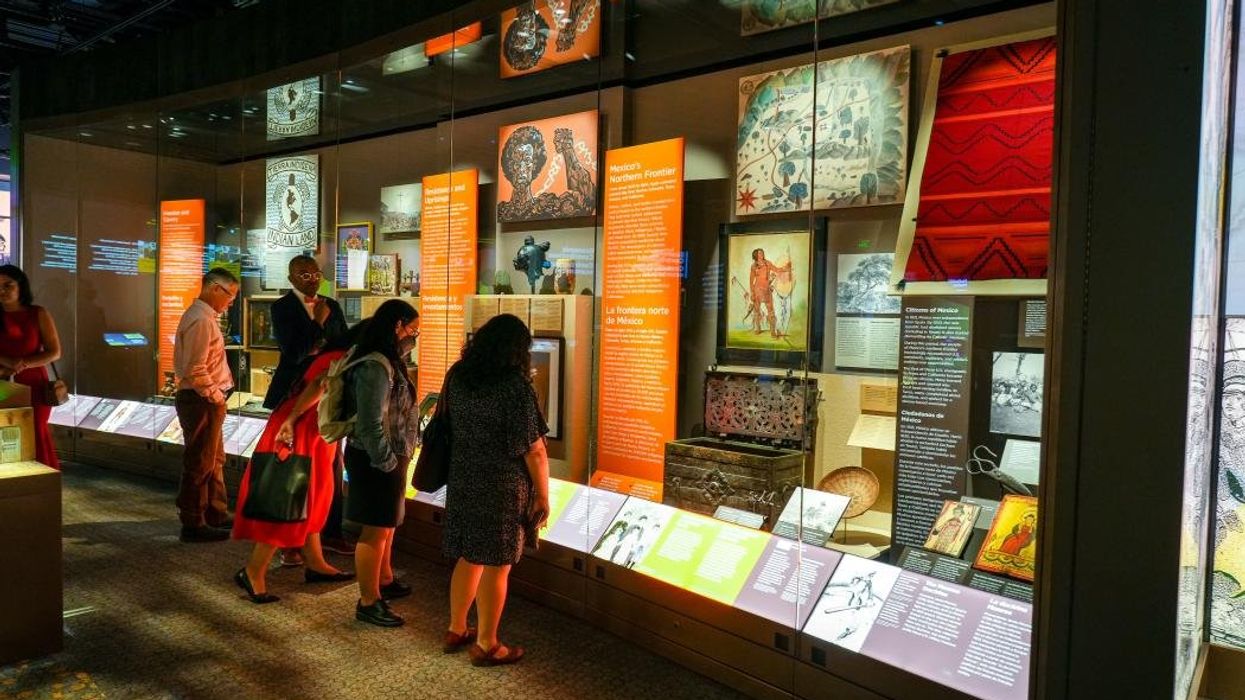The American Museum of the Latino faces more hurdles after over two decades of advocacy.
Congress passed legislation to allow for the creation of the Museum, along with the American Women’s History Museum, as part of the Smithsonian Institution in an online format. Five years later, new legislation introduced by Nicole Malliotakis (R-N.Y.) wants to build a physical museum for both the Latino and women’s museums but might face pushback due to a new executive order signed by President Donald Trump.
Advocacy for the National Museum of the American Latino began in 2003, with former Reps. Xavier Becerra (D-Calif.) and Ileana Ros-Lehtinen (R-Fla.) introduced a bipartisan bill to create the museum. A report titled “To Illuminate the American Story for All” authored by a presidential commission created by former President George W. Bush’s administration in 2011 stated the creation of the museum is necessary.
“The Smithsonian American Latino Museum not only as a monument for Latinos, but as a 21st Century learning laboratory rooted in the mission that every American should have access to the stories of all Americans,” the report stated.
But legislation to officially create the museum did not pass until 2020. The National Museum of the American Latino Act of 2020 was passed in Congress and signed by President Donald Trump. The legislation was included under the Consolidated Appropriations Act of 2021, which includes a subsection authorizing the museum's creation.
However, the National Museum of the American Latino is only online but has occasional in-person exhibits at its Molina Family Latino Gallery at the National Museum of American History. In February 2025, Malliotakis introduced the Smithsonian History of American Women and Latino (SHAWL) Act to build both Latino and women’s Smithsonian museums.
Malliotakis originally introduced the same legislation in August 2024 during the 117th Congress but reintroduced it for the 118th.
“The introduction of this critical bill brings us one step closer to fulfilling the dream of having both museums right where they belong — on the National Mall,” Rep. Tony Cárdenas, who joined Malliotakis in introducing the bill, stated in a press release.
According to documents from the National Museum of the American Latino, a physical museum would either be built on undeveloped land across from the National Museum of African American History and Culture or right northeast of the tidal basin.
The National Museum of the American Latino also stated that they do not comment on pending legislation.
Over at the White House on March 27, President Donald Trump recently endorsed the physical creation of the American Women’s History Museum. Still, he did not show support for the National Museum of the American Latino.
Trump endorsed building the women’s museum at an event associated with the Republican Women’s Caucus. He stated he would back Malliotakis’ legislation “100 percent.”
"The Republican Party today is the party of opportunity, security, and freedom,” Malliotakis stated in a press release.
But recently, the status of the American Museum of the Latino is uncertain as President Donald Trump signed a new executive order titled “Restoring Truth and Sanity to American History.”
The executive order stated that the Smithsonian Institution is “under the influence of a divisive, race-centered ideology.
“Over the past decade, Americans have witnessed a concerted and widespread effort to rewrite our Nation’s history, replacing objective facts with a distorted narrative driven by ideology rather than truth,” the executive order states.
President and General Counsel of the Mexican American Legal Defense and Educational Fund (MALDEF) Thomas A. Saenz called the executive order “troubling” as in the past museums have been kept out of political debate.
“It seeks to introduce current political disputes into policy surrounding long-term preservation of history through museums and similar institutions,” Saenz said in reference to the executive order.
During his second administration, Trump has signed other executive orders seeking to eliminate “woke” initiatives related to diversity, equity, and inclusion within government agencies.
Saenz said MALDEF, which supports the civil rights of all Latinos, wants the museum to have a permanent location on the National Mall. He also added that Latino advocacy organizations and historians should decide what exhibits go in the museum. Saenz said he hopes the museum’s exhibits show the full history and story of the community rather than playing along with stereotypes, like only showing American Latinos as immigrants.
“I hope that there will be consultation with such groups, which often have an understanding of the contemporary repercussions of exclusion patterns in our history and the way that history is taught and passed on in our country,” Saenz said.
Maggie Rhoads is a student journalist attending George Washington University School of Media and Public Affairs. At The Fulcrum, she covers how legislation and policy are impacting communities.




















